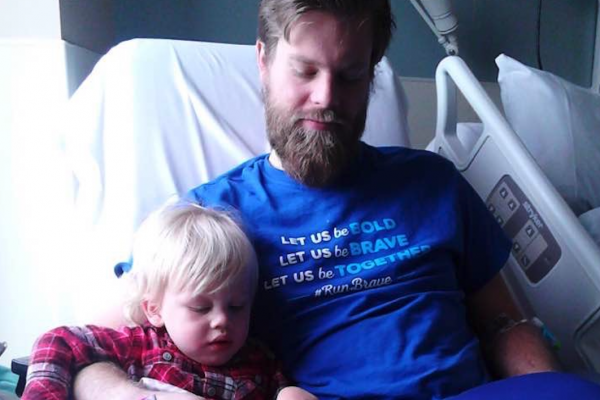While Preventable and Slow to Develop, Colorectal Cancer is the Second Deadliest Cancer in the U.S.
Colorectal cancer is the fourth most common cancer in men and women in the United States. Roswell Park Comprehensive Cancer Center recommends regular screening tests for colorectal cancer starting at age 50. Through the use of early screening procedures like fecal occult blood testing and colonoscopy, tumors can be found and removed before they become cancerous, making colorectal cancer one of the only truly preventable types of cancer.
In middle-aged men and women, a growth known as a polyp can appear on the inner surface of the colon. These polyps usually start out benign, but they can become cancerous over time. If these superficial polyps are found early during a colonoscopy screening, then they can likely be removed with advanced endoscopic techniques during the colonoscopy or with a minimally invasive surgery shortly after their discovery. However, because only 60 to 65% of people who should be getting screened for colorectal cancer are actually doing so, colorectal tumors are often discovered at much later stages.
Even if tumors are detected after they become cancerous, colorectal cancer is still very treatable and slow to develop. Patients can take some time to decide which treatments are best for their situation and shouldn’t feel like they need to rush into an immediate treatment decision.
Never miss another Cancer Talk blog!
Sign up to receive our monthly Cancer Talk e-newsletter.
Sign up!“Once you hear the word ‘cancer,’ I know that you want it removed as fast as possible,” says Steven Nurkin, MD, MS, FACS, a surgical oncologist at Roswell Park. “But when a tumor is found, it has probably been there for a year or more. We do recommend meeting with experts to find the stage of your cancer and then taking the next steps day by day. We have time to work with you to make sure everything is covered. We want to make sure you’re healthy enough to undergo surgery and have seen the appropriate specialist before surgery. Then we want to help you decide what treatment strategy is best for you. With colorectal cancer, there’s usually no need to make an immediate decision about treatment.”
Using a multidisciplinary team approach, Nurkin and his colleagues at Roswell Park review each patient’s cancer individually and decide on the best treatment plan.
For earlier stage colon cancer, surgery to remove any tumors can be scheduled as early as a few weeks after diagnosis, but later stage colon and rectal cancers often require some other form of treatment before surgery. “We may have a patient go through a few weeks of chemotherapy or radiation treatment before we move forward with surgery,” says Nurkin. “In cases of advanced rectal cancer, patients may need chemotherapy or radiation for up to two months.”
Colorectal cancer is very treatable and does not require an aggressive treatment plan, but that doesn’t mean this disease should be taken lightly. It is the second leading cause of cancer-related deaths in the U.S.
For people over the age of 50 or at a higher risk of colorectal cancer, Roswell Park recommends fecal occult blood tests every one or two years and a colonoscopy once every 10 years. By getting regularly screened for colorectal cancer, you can not only save yourself from treatment but also save your life.



